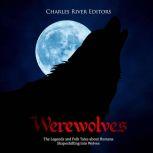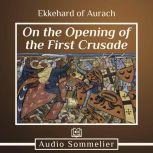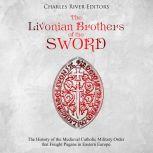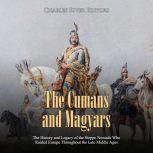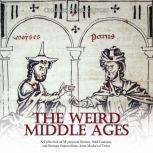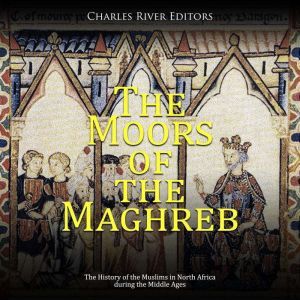
Details
The Moors of the Maghreb: The History of the Muslims in North Africa during the Middle Ages
Author: Charles River Editors
Narrator: Colin Fluxman
Unabridged: 1 hr 33 min
Format: Digital Audiobook
Publisher: Findaway Voices
Published: 09/13/2021
Genre: History - Medieval
Synopsis
The term Moor is a historical rather than an ethnic name. It is an invention of European Christians for the Islamic inhabitants of Maghreb (North Africa), Andalusia (Spain), Sicily and Malta, and was sometimes use to designate all Muslims. It is derived from Mauri, the Latin name for the Berbers who lived in the Roman province of Mauretania, which ranged across modern Algeria and Morocco. Saracen was another European term used to designate Muslims, though it usually referred to the Arabic peoples of the Middle East and derives from an ancient name for the Arabs, Sarakenoi. The Muslims of those regions no more refer to themselves by that term than those of North Africa call themselves Moors. Maghreb, or al-Maghreb, is a historical term used by Arabic Muslims for the territory of coastal North Africa from Alexandria to the Atlantic Coast. It means “The West” and is used in opposition to Mashrek, “The East,” used to refer to the lands of Islam in the Middle East and north-eastern Africa. The Berbers refer to the region in their own language as Tamazgha. In a limited, precise sense it can also refer to the Kingdom of Morocco, the proper name of which is al-Mamlakah al-Maghribiyyah, “Kingdom of the West.”
Ethnically the people of North Africa are mostly of mixed Arab-Berber descent, and the Berbers are a proud and noble group of peoples dating from ancient times. The term Berber is again a foreign designation, coming from the Greek barbaroi, meaning stranger. By implication, as far as the Greeks and Romans were concerned, the word indicated the people were uncivilized. From this comes the archaic English name Barbary, used to designate the north coast of Africa and still used in “Barbary ape” and the breed of horse known as the Barb. The Berbers call themselves Imazighen, though in truth they are a grouping of different tribes rather than a strictly homogenous group.
by Charles River Editors
Werewolves have long been a staple of popular culture. In the 19th century and 20th century, there were countless books, plays, and films about people who turned into wolves or wolf like humanoids and went on rampages. The figure of the werewolf i...
Published: 08/24/2019
by Einhard
Einhard served Charlemagne, king and Holy Roman Emperor, for 23 years. From that experience, combined with his in-depth research, Einhard penned this biography of Charlemagne in the style of Suetonius’ Lives of the Caesars. Because he felt ind...
Published: 05/30/2018
by Ekkehard of Aurach
The notable German historian and monk Ekkehard of Aurach was also a crusader. He wrote a comprehensive world history text, but upon returning from a pilgrimage to Jerusalem in 1101, he rewrote his portion on the First Crusade. “On the Opening ...
Published: 05/06/2018
by Charles River Editors
Although many have heard of the Crusades and some of the more famous orders like the Templars, few know about the Livonian Crusade or the Livonian Brothers of the Sword. This organization was one of many Catholic military orders that sprung up duri...
Published: 08/13/2019
by Pope Urban II
"Against the Infidels” is Fulcher of Chartres eyewitness account of Pope Urban II’s call-to-arms in 1095. This speech launched the First Crusade, but the several historical transcripts record it slightly differently. Fulcher’s acco...
Published: 05/06/2018
by Charles River Editors
Before the Mongols rode across the steppes of Asia and Eastern Europe, the Cumans were a major military and cultural force that monarchs from China to Hungary and from Russia to the Byzantine Empire faced, often losing armies and cities in the proc...
Published: 04/08/2020
by Charles River Editors
In the time period between the fall of Rome and the spread of the Renaissance across the European continent, many of today’s European nations were formed, the Catholic Church rose to great prominence, some of history’s most famous wars o...
Published: 04/13/2020
by Pope Urban II
In 1095, Pope Urban II delivered a powerful call-to-arms to begin the First Crusade. Robert the Monk, likely an eyewitness, recorded this speech years later, after the crusade had ended. In his account, Urban described horrific crimes committed agai...
Published: 05/06/2018
by Abigail Archer
Looking into the past, the Crusades seem incomprehensible. What combination of religious fervor, hatred of people of different faiths, and gall led Europeans of 1100 AD to make their way thousands of miles to conquer the Holy Land? Why did they cont...
Published: 04/18/2017

